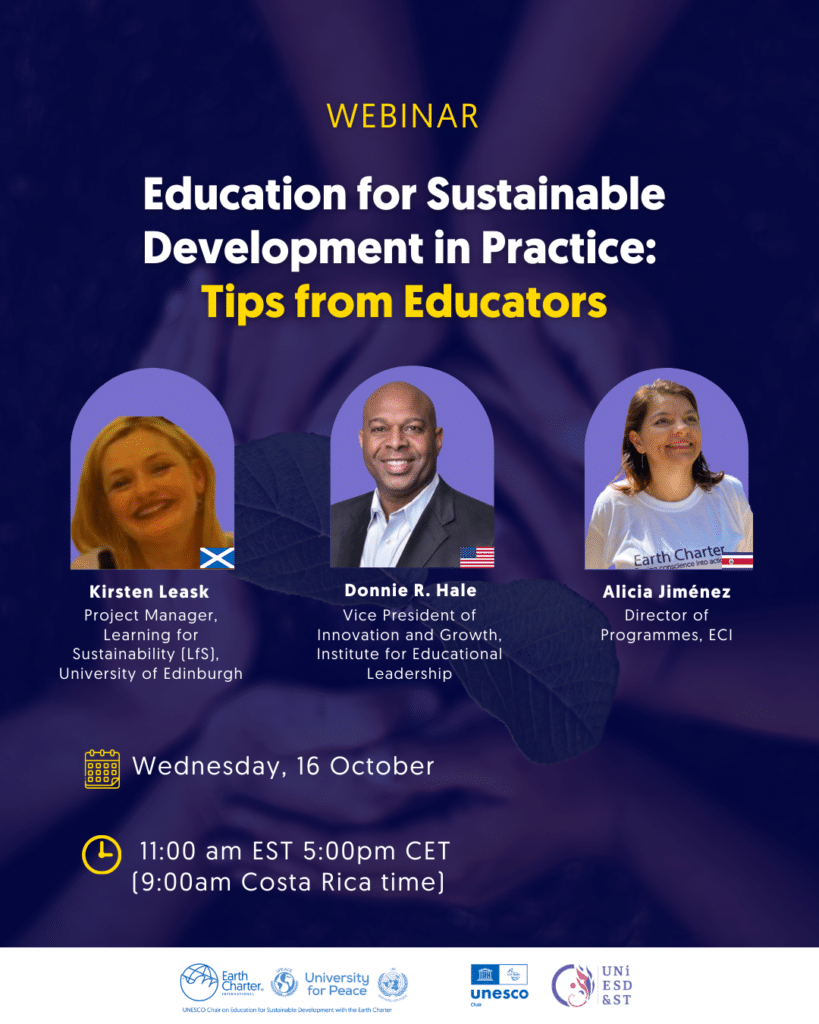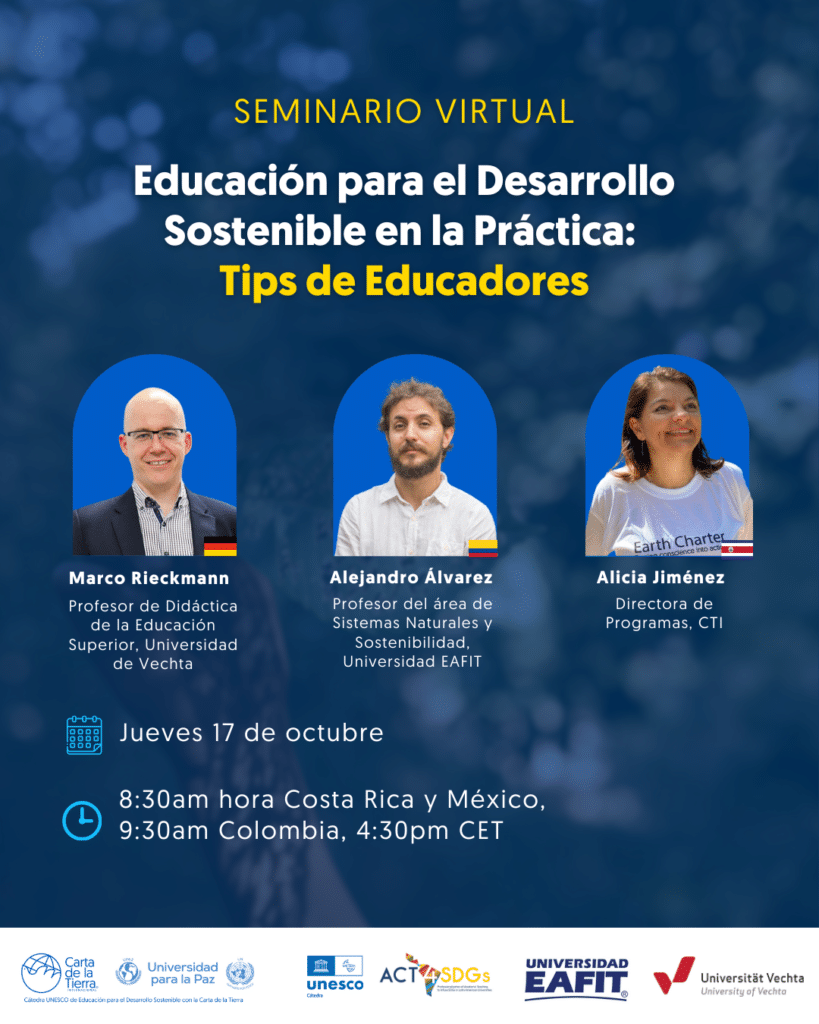Earth Charter International and the UNITWIN Network on ESD and Social Transformation, are organizing a series of webinars called Education for Sustainable Development in Practice: Tips from Educators, which take place twice per year (May and October), in English and Spanish. The objective is to open a space for sharing and learning about how education for sustainability can be put into practice and get inspiration from concrete actions, from primary and secondary to higher education, in formal or non formal settings and from different cultural contexts.
On Wednesday 16 October 2024, we held the webinar in ENGLISH with two speakers: Kirsten Leask (Scotland) and Donnie R. Halle (USA).
Kirsten Leask, Project Manager (Connecting Classrooms), Learning for Sustainability (LfS) Scotland, at the Moray House School of Education and Sport, IETL, of the University of Edinburgh. Kirsten shared the story of Scotland’s national policy on education and sustainability called “Learning for Sustainability – LfS”. LfS approach to life and learning is to embed an ethos of sustainability and global citizenship in all areas of work in education institutions. They call these areas the 4 C’s: Curriculum, Campus, Culture and Community. She shared the story of one school in Scotland – Duns Primary School, to exemplify how this national policy is being implemented in practice.
Donnie R. Halle, Vice President of Innovation and Growth for the Institute for Educational Leadership (IEL). He is responsible for supporting leaders and networks, coaching and professional development, and building capacity for community schools to positively impact youth and families. He shared about the concept of “community school”, where schools are central in the development of their neighborhoods, supporting the well-being of families, especially in marginalized communities. They found that there were many resources available to work in these communities but stakeholders were not collaborating. That’s why they created the conditions to work with schools and different community partners to move away from poverty to possibility, enhancing the quality of education in these communities’ schools.

Watch the recording here: https://www.youtube.com/watch?v=mamIrCZ2ziw&t=543s
In this webinar, we offered a public recognition to Avonwood Primary School (UK), for completing the process to become an Earth Charter School (Advanced Level). Find more information here
On Thursday 17 October 2024, we held the webinar in SPANISH, with two speakers: Alejandro Álvarez-Vanegas (Colombia) and Marco Rieckmann (Germany).
This webinar in Spanish was organized in the framework of the ACT4SDGs project, where ECI and the University for Peace is collaborating with 13 more universities in Latin America and Europe to promote the professionalization of academic teaching on sustainability.
The webinar started with the presentation of Alejandro Alvarez Vanegas’ PhD thesis: “Moving Universities Towards Education for Sustainable Development”. Alejandro is a Professor at EAFIT University and has worked closely with Dr. Rieckmann.
His research focused on recognizing that there are students who do not have sufficient competencies for sustainability, therefore, what should be changed in universities to foster these competencies, and how to do it?
He proved that service learning is a methodology that can bring innovation to university teaching and foster sustainability competencies, in the context of a Colombian University. With this methodology students are exposed to real problems, they can connect with the environment and work in teams to contribute to the community. However, to foster these competencies in students it is important to generate capacity building processes in the faculty, especially in aspects related to sustainability.
Marco Rieckmann, Professor of Higher Education Didactics at the University of Vechta (Germany), Head of Sustainability at the same university, is an expert in competencies for sustainability. He addressed the following questions in his presentation, offering exammple:
– What are the key competencies for sustainability that students need to acquire to meet the challenges of the 21st century, and how can they be effectively integrated into higher education?
– What competencies university professors need to work effectively with sustainability in higher education and how can these competencies be developed?
– What pedagogical methodologies are most effective for teaching sustainability competencies, such as critical thinking and systems thinking?
– What are the main challenges universities face in implementing education for sustainable development, and how to overcome them?
– What future trends do you see in the field of education for sustainable development in the next 10 years?
Watch the recording here: https://www.youtube.com/watch?v=xyWUAN8QPTw&t=21s

“ACT4SDGs is a CBHE Project of the European Commission. The content presented here reflects the views only of the authors, the European Commission is not responsible for any use that may be made of the information contained herein.”






